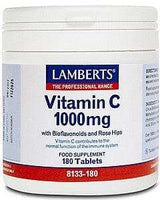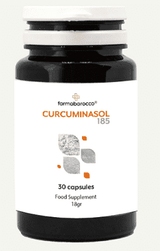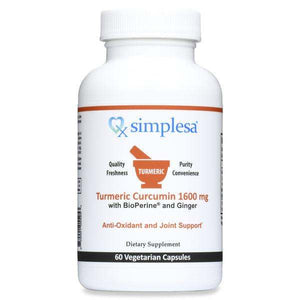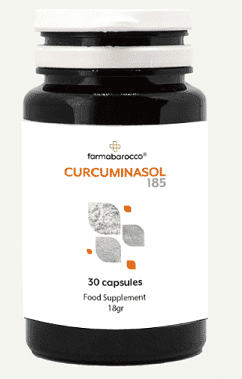
 Instagram
Instagram
Related products
Does Chewing Gum Break a Fast?


Table of Contents
Related products
Fasting, a practice dating back centuries, is primarily the voluntary abstention from eating and, in some cases, drinking, for a specified period. The forms of fasting vary widely, encompassing intermittent fasting, where individuals alternate between periods of eating and fasting, water fasting, where only water is consumed, and religious fasting, observed during specific holy days or periods, like Ramadan or Lent. Each form has distinct rules and traditions, but the commonality lies in the deliberate decision to refrain from consuming food or drink for health, spiritual, or other reasons.
Understanding what constitutes breaking a fast is crucial for individuals observing fasting for any reason. Consuming any amount of food or drink that is not permitted during the fasting period can break the fast, negating the effort and potentially impacting the intended benefits, whether they are for health, weight loss, or spiritual purification. For individuals engaged in intermittent fasting, mistakenly consuming foods or drinks could disrupt metabolic states, such as ketosis, thereby impacting the effectiveness of the fast.
A common query among those fasting is whether chewing gum breaks the fast. This concern arises due to the ingredients found in gum and the act of chewing, which could potentially signal the body to prepare for digestion. Understanding the relationship between chewing gum and fasting is essential for maintaining the integrity of the fast and ensuring that the intended goals are met without unintentional disruptions.
Does Chewing Gum Break a Fast?
Whether chewing gum breaks a fast largely depends on the specific goals and rules of your fasting regimen and the type of gum. If you are following a strict fast where no caloric intake is allowed, then technically, any gum containing calories, whether from sugar or other sweeteners, could break the fast.
In the case of intermittent fasting or fasting for weight loss, the impact may be less significant, especially if the gum is sugar-free. However, it's essential to note that even sugar-free gums can stimulate digestive enzymes and potentially trigger a metabolic response, which some may consider breaking the fast.
For those in ketosis or following a ketogenic fasting approach, sugar-free gum is generally acceptable as it should not contain enough carbohydrates to disrupt ketosis. However, individual responses may vary.
In spiritual or religious fasts, rules vary by tradition and personal belief; some may allow non-nutritive chewing gum, while others may not.
Ultimately, the decision to include chewing gum during a fast should consider the type of fasting, the ingredients in the gum, and personal fasting objectives.
What is Fasting?
Fasting is defined as the act of willingly abstaining from some or all food, drink, or both, for a specific period. The purpose of fasting varies; it can be undertaken for health reasons such as improving metabolic health or losing weight, for medical reasons such as preparing for a medical test or procedure, or for spiritual or religious reasons, aiming for inner purity and discipline.
Different types of fasting and their rules
The rules of fasting differ depending on the type. Intermittent fasting involves cycles of eating and fasting periods, typically 16 hours of fasting followed by an 8-hour eating window. Water fasting allows only water consumption, excluding all other foods and drinks. Religious fasts have specific guidelines based on the particular faith's doctrine, which can dictate the timing and duration of the fast, as well as what is and isn't allowed during the fasting period.
The metabolic state of fasting
When fasting, the body undergoes several metabolic changes. Initially, it utilises glucose stored in the liver and muscles. Once these stores are depleted, typically after 8 to 12 hours, the body begins to convert fat into energy through a process called ketosis. This metabolic state is associated with several health benefits, including improved brain function and reduced inflammation. Understanding these changes is crucial for those fasting, as it underscores the importance of adhering strictly to fasting guidelines to achieve desired outcomes.
What is Chewing Gum?
Chewing gum typically contains a gum base, sweeteners, flavourings, and, in some cases, softeners, preservatives, and colouring agents. The type and amount of ingredients vary by brand and product. Sweeteners can range from sugar to artificial alternatives like aspartame or natural ones like xylitol.
Classification of ingredients based on their impact on fasting
The ingredients in chewing gum can be classified based on their impact on fasting. Sugars and caloric sweeteners can break a fast, as they provide energy and trigger an insulin response. Non-caloric sweeteners, while not providing energy, can still elicit an insulin response in some individuals. The physical act of chewing and the taste of sweetness, regardless of caloric content, may also stimulate digestive activity, potentially affecting the fasted state.
Impact of Chewing Gum on Fasting
The impact of chewing gum on fasting depends largely on its ingredients. Traditional chewing gums containing sugars can break a fast due to their caloric content. Sugar-free gums, while better, still pose a risk due to the body's cephalic phase response, where even the taste of sweetness can stimulate insulin secretion and digestive activity, potentially interrupting the fast.
The role of digestion and insulin response
Chewing gum can trigger the cephalic phase response, preparing the body for digestion by increasing saliva production and initiating insulin release. This response can be problematic for those fasting, as insulin is a key hormone that signals the body to store energy, thus moving out of the fasting state.
Differences in fasting goals and how gum impacts them
The impact of chewing gum on fasting varies depending on the individual's goals. For weight loss purposes, the minimal calories in sugar-free gum are unlikely to significantly impact the overall caloric deficit. However, for those fasting for blood sugar control or to achieve a state of ketosis, even sugar-free gum may interfere with these objectives due to the insulin response or digestive activation.
Practical Advice
When and how to choose the right type of gum (if any) during fasting
For individuals who choose to chew gum while fasting for reasons such as oral hygiene or to alleviate hunger pangs, selecting the right type is crucial. Sugar-free gums with natural sweeteners like xylitol or erythritol are preferable, as they are less likely to cause an insulin response. However, Dr. Johnson advises, "If fasting for health reasons related to insulin sensitivity or diabetes, it may be best to avoid gum altogether during fasting periods."
Alternatives to chewing gum for those concerned with breaking their fast
For those concerned about the potential impact of chewing gum on fasting, alternatives include drinking water, herbal teas (without sweeteners), or brushing teeth more frequently for oral freshness. Engaging in distraction activities or mindfulness practices can also help manage the desire to chew gum and maintain the integrity of the fast.
People Also Ask
Can you eat chewing gum when fasting?
Whether you can eat chewing gum while fasting depends on your fasting goals and the type of gum. If the gum contains sugars or calories, it could technically break your fast. Sugar-free gum may have minimal impact but could still trigger a digestive response.
Does chewing gum break ketosis?
Chewing sugar-free gum generally does not break ketosis as it typically has minimal to no carbohydrates. However, some sugar alcohols in gum can affect blood sugar levels in sensitive individuals, potentially impacting ketosis.
Will 10 calories break a fast?
Consuming 10 calories during a fast can technically break it since any caloric intake signals the body to end the fasting state. However, the impact might be minimal and vary from person to person.
Will 5 calories break a fast?
Similar to 10 calories, consuming 5 calories can technically break a fast, as fasting ideally involves abstaining from all caloric intake. The actual impact on the fast may depend on individual metabolic responses and fasting objectives.
Conclusion
In conclusion, whether chewing gum breaks a fast depends on the type of fasting, the individual's goals, and the ingredients in the gum. While the scientific evidence is not definitive, there is consensus that sugar-containing gums disrupt fasting, whereas sugar-free gums might have minimal impact. However, from religious and philosophical perspectives, abstention may be preferred to maintain the purity and discipline of the fast. Ultimately, individuals should consider their specific fasting objectives, consult with healthcare professionals or religious advisors, and make informed decisions regarding chewing gum during fasting periods.














































